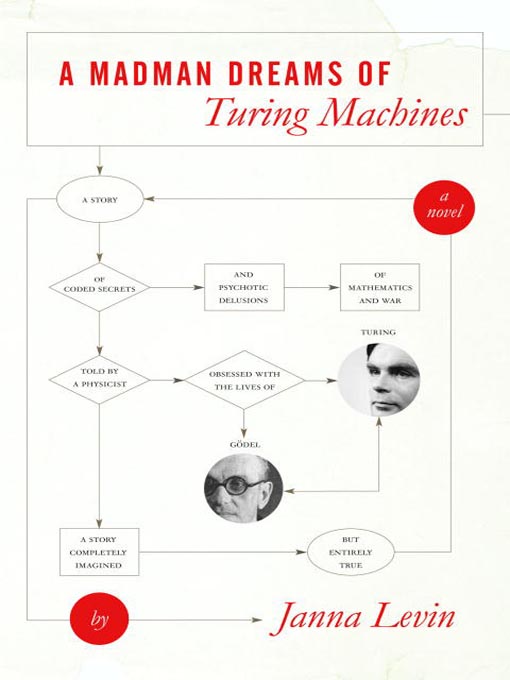
A Madman Dreams of Turing Machines
کتاب های مرتبط
- اطلاعات
- نقد و بررسی
- دیدگاه کاربران
نقد و بررسی

May 8, 2006
The lives of Kurt Gödel (1906– 1978) and Alan Turing (1912– 1954) never crossed physically, but did intellectually: Gödel's incompleteness theorem implies a sort of Platonism, and Turing's mechanical decision theory implies, conversely, hard-nosed materialism. Levin, a mathematician, juxtaposes both lives in her debut novel. She begins with Gödel as a young man in Vienna, his incompleteness theorem destroying the line of inquiry (arguably spearheaded by Wittgenstein, who cameos)that argued math was complete in itself; his courtship with a nightclub dancer, Adele; his misunderstanding of the Nazi takeover of Austria. Alan Turing's not very charmed life is skewed not only by what looks like autism but by being hounded for his homosexuality in Britain—after breaking the German Enigma code during WWII. Turing is an innocent in many ways, while Gödel, a greater thinker, is a monster of selfishness; both, however, have a passion for the invisible that is hard to dramatize. Gödel becomes a paranoid old man, living with Adele (who comes alive through Levin's shrewd novelistic guesswork) in solitude in Princeton, and eventually starving himself to death. Levin is sympathetic to all concerned, but doesn't quite make a larger point, dramatic or otherwise.

May 15, 2006
Levin (physics & astronomy, Barnard; "How the Universe Got Its Spots") has written an illuminating, highly personalized account of the intellectual confrontation of two of the last century's most brilliant thinkers -logician Kurt Gö del and mathematician Alan Turing. Turing, who broke the Nazis' Enigma Code for the British in World War II, argues that -mathematics is not a human invention [but] the purest form of natural law. - Gö del is determined to refute Turing's thesis that -mental procedures cannot go beyond mechanical procedures. - Yet for all that brilliance, Levin searingly portrays the inability of either man to manage his own life, with one starving himself to death and the other committing suicide. The author enters unobtrusively into her story and wonders, along with her characters, whether we can ever know the truth. The one thing we do know is real are library budgets, and libraries that can spring for this book will richly reward patrons who enjoy a novel of ideas." -Edward Cone, New York"
Copyright 2006 Library Journal, LLC Used with permission.

























دیدگاه کاربران